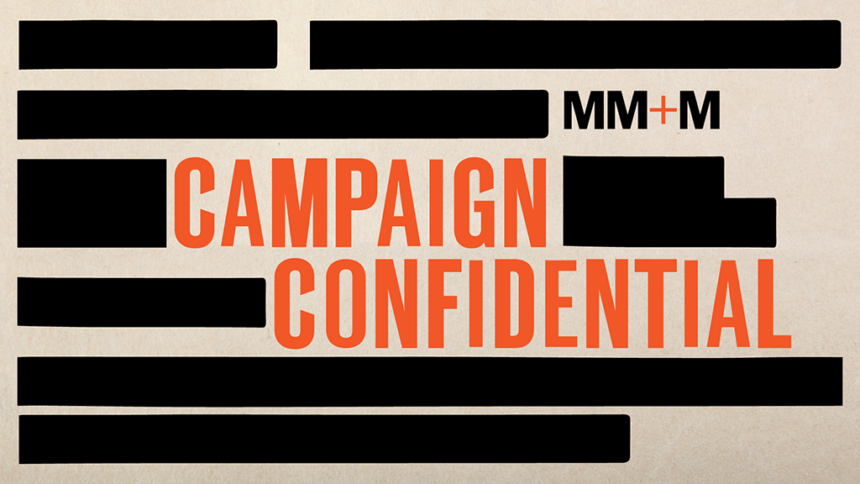Domestic violence is not an easy topic to discuss in most settings and marketers understand that ads targeting the issue need to be delivered in a nuanced and compassionate way.
The Feeling Small campaign created by Neon for Safe in Harm’s Way and DomesticShelters.org faced two unusual challenges.
First, the effort aimed to reach people who do not recognize themselves as victims of domestic violence. Second, the message had to break through the barriers that many abusers can place between victims of domestic violence and messages offering help.
At the center of Feeling Small is a 20-second animated PSA of a man and woman at a kitchen table. He looms over her, crowding into her space, while she pulls back and inwards, embodying a combination of fear, discomfort and shame. The takeaway message is that “No one should make you feel small.”
The Feeling Small campaign rolled out before the holidays on over 340 screens in high-traffic areas like Times Square, Union Station in Washington, D.C., as well as office lobbies, elevators, gas stations, billboards, digital bulletins and mall kiosks throughout the country.
The timing positioned the campaign in front of holiday travelers — including on Thanksgiving, the busiest travel day of the year — and shoppers.
“We were trying to find ways to get away from that standard view of what abuse is and we’re trying to find nuances and little narratives that get more at a feeling,” Morgan Mellas, senior art director at Neon explains “In Feeling Small, it’s more about that abuse isn’t just physical — it’s mental, it’s emotional, and there are so many nuances to it. We don’t want to paint that with a broad stroke.”
Approximately 10 million people in the U.S. suffer from physical abuse by an intimate partner each year, according to data from the National Coalition Against Domestic Violence.
By deviating from the more stereotypical portrayals of domestic abuse, the campaign seeks to avoid an automatic dismissal from audiences as well as a response that “that isn’t me,” among some victims. The PSA also aims to help educate family and friends for signs that someone they know may need help.
“We didn’t want it to feel as though we were telling someone they were being abused,” says Caroline Hammond, CEO of Safe in Harm’s Way. “We wanted them to identify with what they were seeing and then be able to make that connection and move towards being able to unpack what they’re experiencing.”
At the same time, the campaign offers resources to others that if friends “become smaller” in a new relationship, it may be a red flag indicating that there are reasons to be concerned.

The outdoor focus of Feeling Small builds on the strategy of The Last I’m Sorry campaign, which was also produced by Safe in Harm’s Way and DomesticShelters.org and covered by Campaign Confidential last March.
“We can reach people in a way that no one can alter what they’re seeing in a public space,” Hammond says. “We can connect and that cannot be controlled by someone exerting power over them.”
The previous campaign delivered a billion impressions, according to Hammond, and “opportunities for people to find us and get help.” While The Last I’m Sorry was focused mostly on billboards, Feeling Small has added other OOH platforms, like video screens at gas pumps.
As a pro-bono effort, the timing of the current campaign and two others that are still being developed depends on the availability and the generosity of other partners. For Mellas, the commitment to the campaign by the organizations that have supported it makes Feeling Small unique.
“I love this community of people and how everybody is willing to just give their time and energy across the board, whether it’s DomesticShelters.org, Safe in Harm’s Way, Neon, Carioca Studio [responsible for the campaign imagery] and every brand that has chipped in,” she said. “It’s gratifying that people recognize that this is an issue and they want to help.”
Ashley Rumschlag, CEO of DomesticShelters.org, adds that she wants people to know the “real side of domestic violence” and not only what has been portrayed in the media and passed down through the culture.
“I want people to understand that they deserve help and they deserve to feel safe and happy and loved,” she says.







